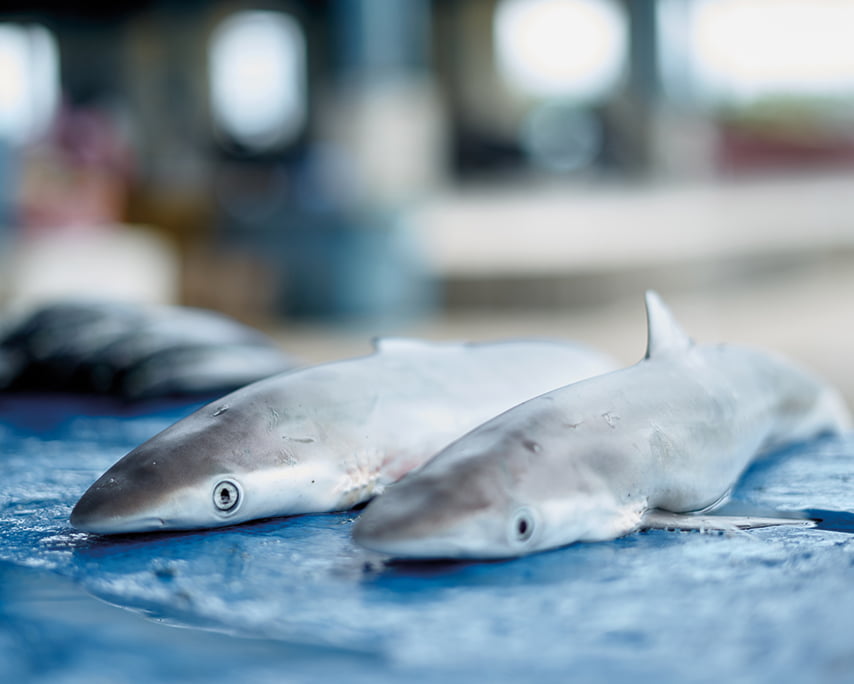International Day against Illegal, Unreported & Unregulated Fishing
Fisheries are indispensable to the global community, providing a critical source of food, employment, recreation, trade and economic well-being. In a world grappling with a growing population and persistent hunger, fish is a vital commodity for achieving food security. It offers a rich source of protein, essential fatty acids, vitamins and minerals, making it an integral part of diets across the globe. Beyond nutrition, the fisheries sector is a cornerstone for millions of livelihoods, especially on the East African coast, supporting fishing, processing and distribution jobs. However, the sustainability of fisheries is increasingly under threat due to illegal, unreported, and unregulated (IUU) fishing. This pervasive problem undermines international efforts to manage and conserve fish stocks, posing a severe risk to global food security and economic stability.
Illegal, unreported, and unregulated fishing activities present a formidable challenge to the sustainability of fisheries. It encompasses a range of illicit activities, including fishing without authorisation, exceeding quotas, fishing in prohibited areas and failing to report catches accurately. These activities not only deplete fish stocks but also distort markets and undermine the livelihoods of law-abiding fishers. This kind of fishing is particularly detrimental to developing countries with limited resources to enforce regulations and manage fisheries effectively. It erodes the economic foundation of communities that rely heavily on fishing for income and sustenance. Furthermore, the environmental impacts are profound, leading to overfishing, habitat destruction and the collapse of vulnerable fish populations.
The socioeconomic impacts of IUU fishing are profound, particularly for coastal communities. It leads to significant economic losses for countries and legitimate fishing operations, estimated at over $22 billion annually. These losses directly impact coastal communities, reducing income, increasing poverty, and leading to food insecurity. Moreover, IUU fishing can exacerbate social tensions and conflicts over marine resources, contributing to economic disparity and social instability.
Recognising the urgent need, the international community has taken significant steps to combat IUU fishing. Collaborations between multiple countries, such as the Maritime Security Programme (MASE), have proven highly effective in enhancing maritime security. These initiatives, through improved monitoring, control, surveillance, and information sharing, have not only bolstered regional trade and global security but also fostered a conducive environment for regional economic development. However, the effectiveness of these measures is often hindered by resource constraints, lack of political will, and inadequate implementation at national and regional levels.
As one of the primary challenges to maritime security in the East African coast, IUU fishing seriously compromises the sustainability of fisheries as a vital global food security as well as the livelihoods of millions. Addressing this challenge requires concerted international efforts, robust regulatory frameworks, and the integration of advanced technologies. By combating IUU fishing, we can safeguard fish stocks, support sustainable fisheries, and ensure the continued provision of essential benefits to communities worldwide. On a micro level, consumers can advocate for these efforts by choosing to buy seafood certified by credible organisations, ensuring the fish is sourced sustainably. Such a practice ensures they buy from local fishers and suppliers who can provide information on the origin of their products, supporting transparency and sustainable practices—an ideal way to champion Sustainable Development Goal 12, which considers responsible consumption and production. Broadly, organisations can conduct research to identify hotspots of IUU fishing, monitor fishing activities using advanced technologies such as satellite tracking and drones, and lobby for stronger regulations and international agreements to tackle IUU fishing.
Combating IUU fishing is a complex and multifaceted challenge that requires the collective efforts of individuals, organisations, governments, and international bodies. This International Day against Illegal, Unreported and Unregulated Fishing admonishes us to make informed choices, advocate for stronger policies, implement sustainable practices and leverage technology to make significant strides in protecting our oceans and ensuring the long-term sustainability of fish stocks. Every effort counts to create a future where marine resources are managed responsibly and equitably.



